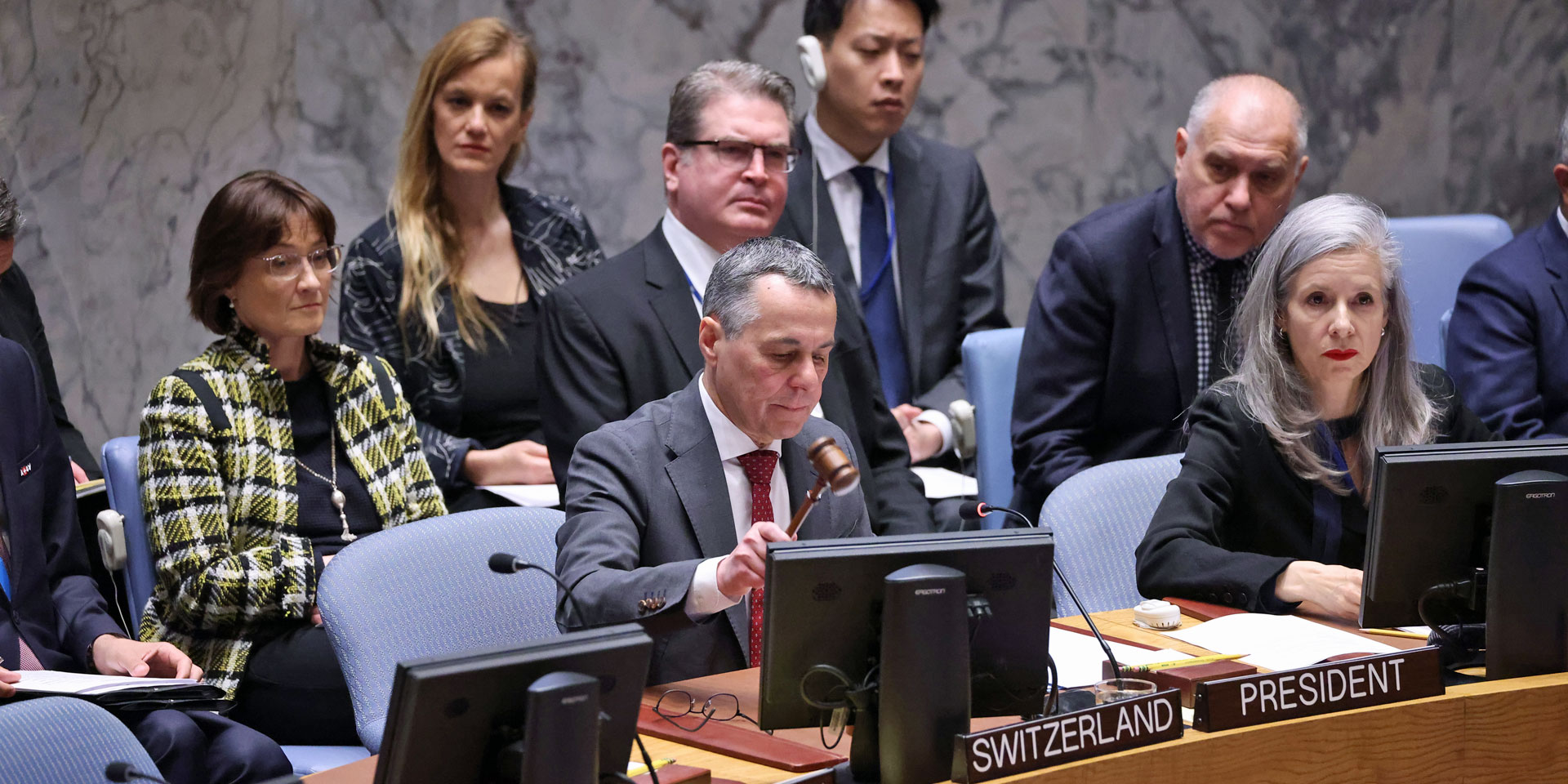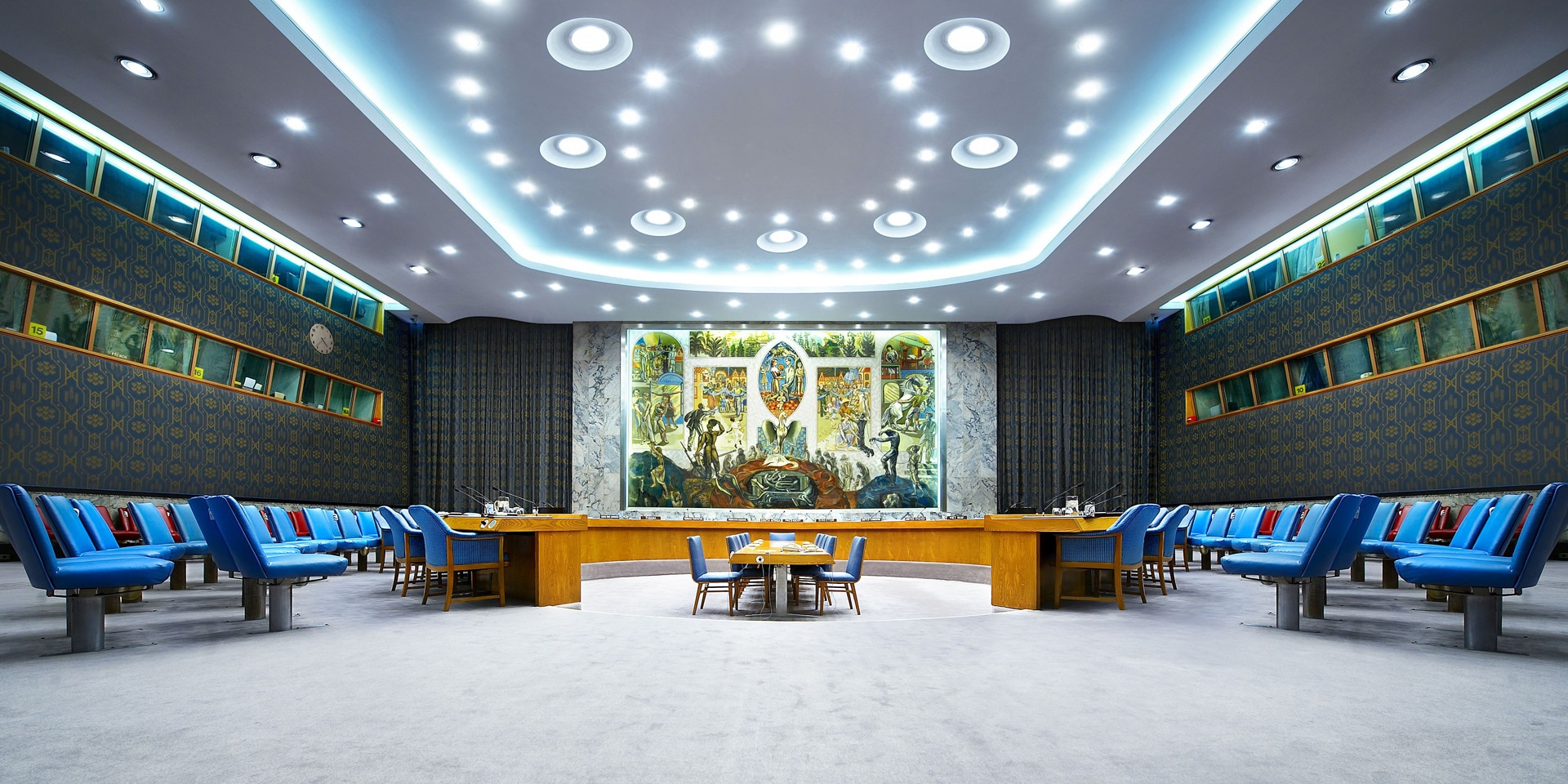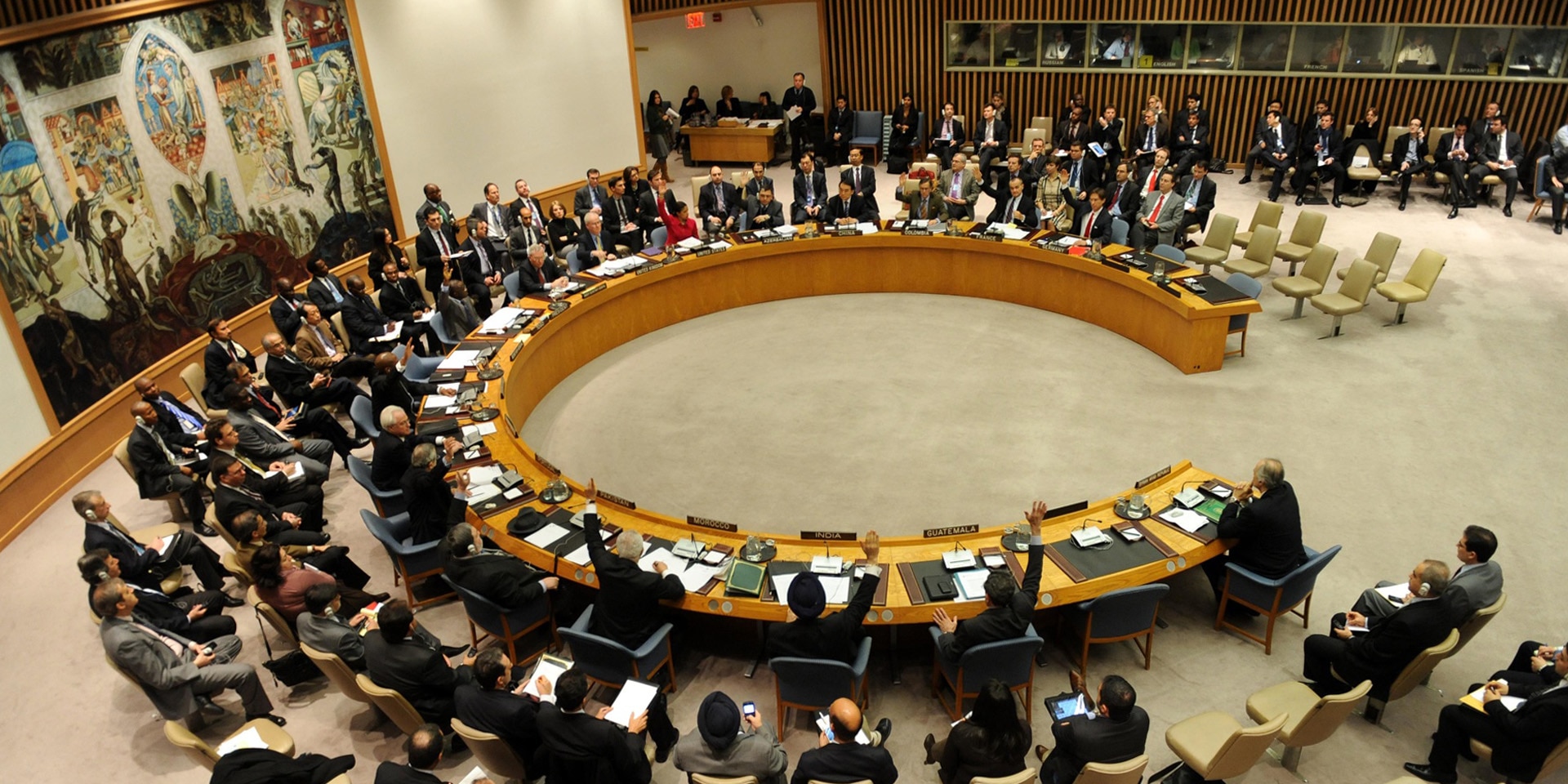Switzerland and the United Nations Office for West Africa and the Sahel: a win-win partnership
West Africa and the Sahel are home to millions of people facing numerous challenges – climate change, armed conflict, food crises and rising energy costs. Everyone is affected, especially the more vulnerable sections of society. Switzerland's partnership with UNOWAS aims to create prospects. An interview with Carol Mottet of the Peace and Human Rights Division in the FDFA.
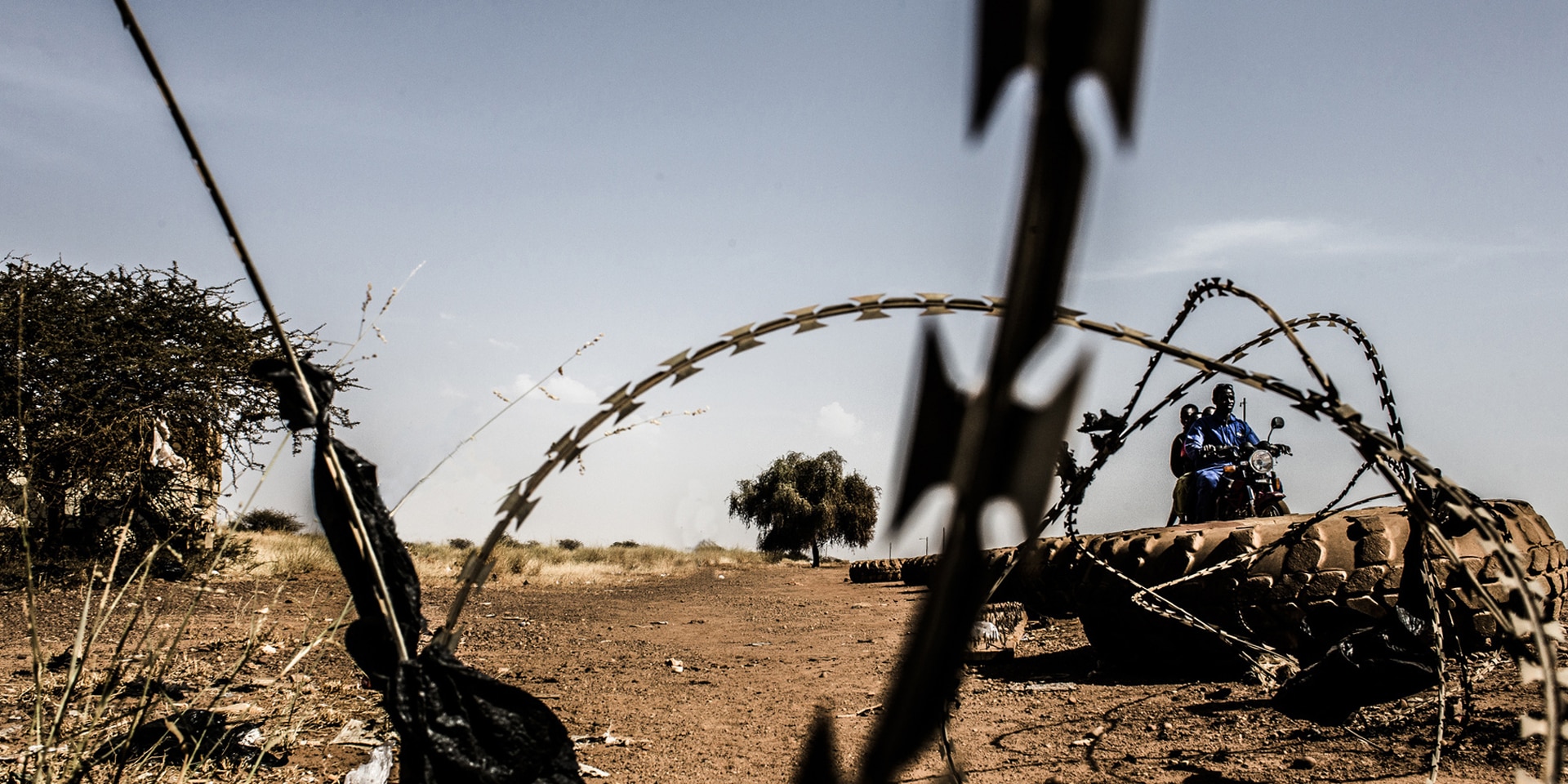
Frieden und Sicherheit in Westafrika und der Sahelzone. Das Engagement der Schweiz und von UNOWAS ergänzen sich in der Region. © Keystone
The mandate of the United Nations Office for West Africa and the Sahel was extended by the UN Security Council for a further three years. As the Security Council's co-penholder on UNOWAS and in line with its foreign policy, Switzerland supports the office's activities on the ground. UNOWAS has been active in 16 countries in the region since 2002.
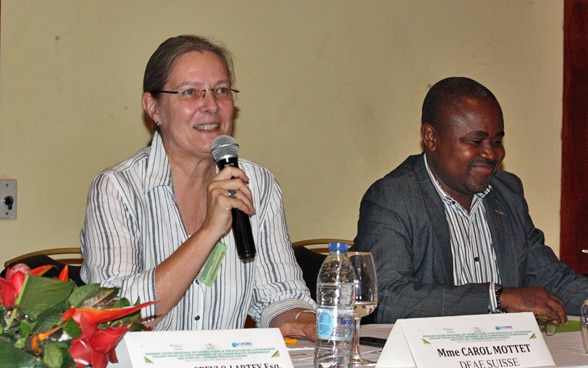
It works for peace, security and democratic governance in states that are or have been affected by conflict or political crises.
Switzerland's long-standing commitment to peace and development in the region, with a focus on the protection of civilians, sustainable peace and climate security, also complements the priorities set out by UNOWAS. We interviewed Carol Mottet, a mediation specialist at the FDFA's Peace and Human Rights Division, to find out what Switzerland is doing to help on the ground.
What is your assessment of the current situation in West Africa and the Sahel? What are the biggest challenges?
The situation in West Africa and the central Sahel region is very diverse and depends on the individual country. But there are some general trends. The armed conflict plaguing central Sahel (Mali, Niger and Burkina Faso) for over a decade remains at the forefront and has even deteriorated significantly, particularly in terms of the suffering and violence inflicted on the civilian population. It has also spread to the coastal countries of the Gulf of Guinea (Benin, Côte d'Ivoire, Ghana and Togo), triggering a spiral of violence involving all the different armed groups. This security crisis and its acute humanitarian repercussions are further compounded by the political crises in Mali, Burkina Faso and Guinea Conakry, where there have been unconstitutional changes of government. This in turn has impacted on relations between states in the region.
There are other challenges as well: even though there is a young, progressive and dynamic population, accessing education is not easy, and there is a lack of economic and professional prospects, as well as the burden of a system of governance and traditions that are less inclusive. Land issues are also at the heart of the ongoing violence. But in spite of everything, West Africa is still a place of opportunity.
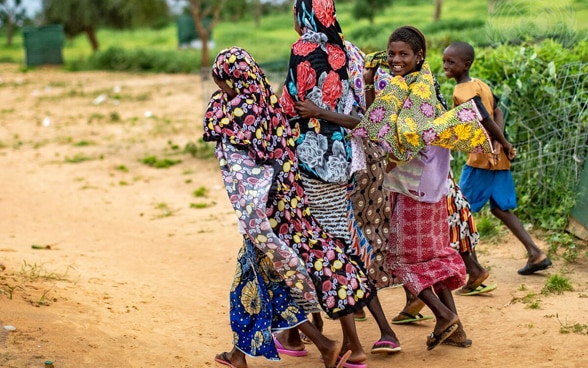
What is the response to such challenges?
The past decade has seen large-scale military and security measures in response to these challenges – mainly in the central Sahel region and now also in the Gulf of Guinea – but it is clear that this has not reduced or even contained the violence. I can't help but notice how this trend is based on decisions taken primarily by men and senior officials working in areas where hardly any women or young people are involved. We must ask more questions about the root causes of the violence and what alternative responses are necessary. What this region needs is a political vision for its future, driven by the states themselves and based on the hopes of their people, together with the support of other partners. This is how Switzerland seeks to work with its numerous partners in the region – through its development and peace programmes.
This February, the FDFA and UNOWAS are organising a conference in Dakar on preventing violent extremism. Why?
Switzerland's commitment to preventing violent extremism in West Africa and its partnership with UNOWAS are not new. Back in 2016, UNOWAS and Switzerland, which had just adopted its Foreign Policy Action Plan on Preventing Violent Extremism, launched an initiative for a series of Regional Conversations on the Prevention of Violent Extremism in the Sahel-Sahara – the first taking place in Dakar in 2016, the second in N'Djamena in 2017, and the third in Algiers in 2018. Switzerland also launched a programme to support the violence prevention efforts of its partners in West, Central and North Africa. This resulted in around 40 meetings involving over 2,000 participants, allowing them to share experiences, foster innovative alternatives and strengthen capacities in violence prevention.
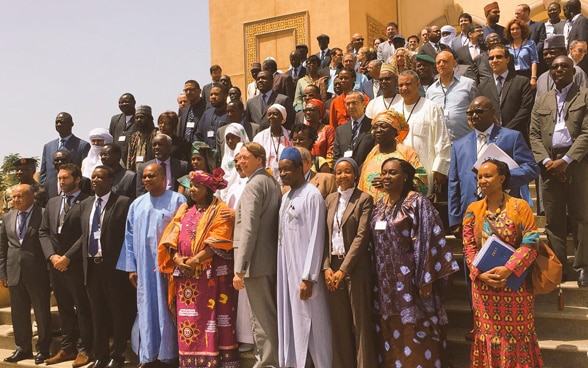
Seven years later, UNOWAS and Switzerland are organising a new high-level conference, which will take place in Dakar at the end of February 2023 – the great rendezvous on preventing violent extremism in West and Central Africa: realities and perspectives.
What is the goal of the conference?
The main goal of the meeting is to mobilise political will among leaders and regional organisations to engage more actively in prevention efforts as an alternative approach for long-term change.
To this end we shall be placing dialogue at the heart of the response. Dialogue is a way of governing and listening to people in order to better respond to their aspirations. The conference should serve as a space to continue this dialogue, addressing such key issues as the relationship between the state and its citizens, the role of defence and security forces in prevention, land-related tensions, and climate change. We will then use the outcome of the conference to formulate recommendations for states, other stakeholders and our partners to help them work together and strengthen these prevention efforts.
How are Switzerland and UNOWAS cooperating on this conference?
Both Switzerland and the United Nations are in full agreement on the importance they attach to peacebuilding and violence prevention in West Africa. Partnering with UNOWAS allows us to uphold these shared values and work together for political solutions to the crises in the region. Switzerland's partnership with UNOWAS is win-win.
Switzerland in the UN Security Council
On 31 August 2022, the Federal Council adopted four thematic priorities for Switzerland's 2023–24 Security Council term: These are:
- Building sustainable peace
- Protecting civilians
- Addressing climate security
- Enhancing effectiveness
Switzerland's non-permanent seat on the UN Security Council will be a logical extension of its commitment to peace and security worldwide. The Federal Constitution states that Switzerland shall promote the peaceful coexistence of peoples and help to build a just international order. This is also the stated goal of the UN Security Council. On 9 June 2022, the UN General Assembly elected Switzerland as a non-permanent member of the UN Security Council for a two-year period from 1 January 2023 to 31 December 2024.
Newsticker on Switzerland's membership of the UN Security Council

